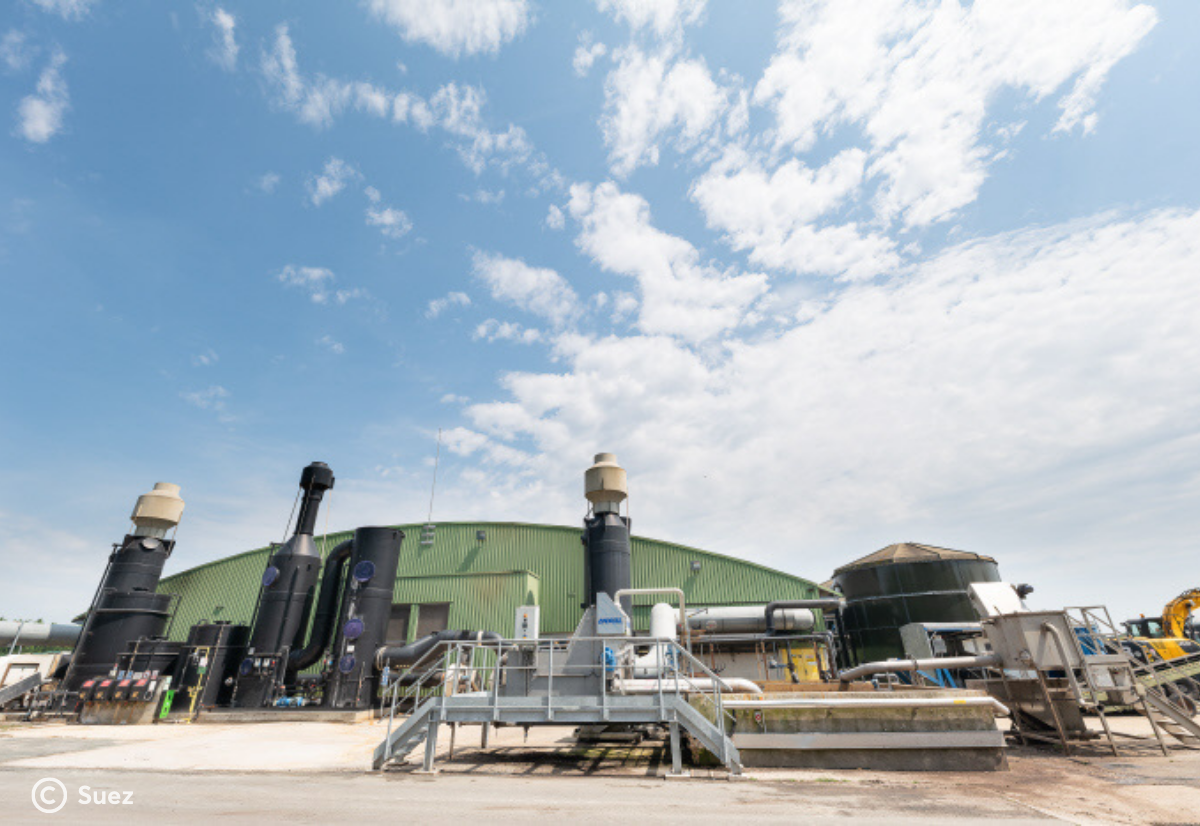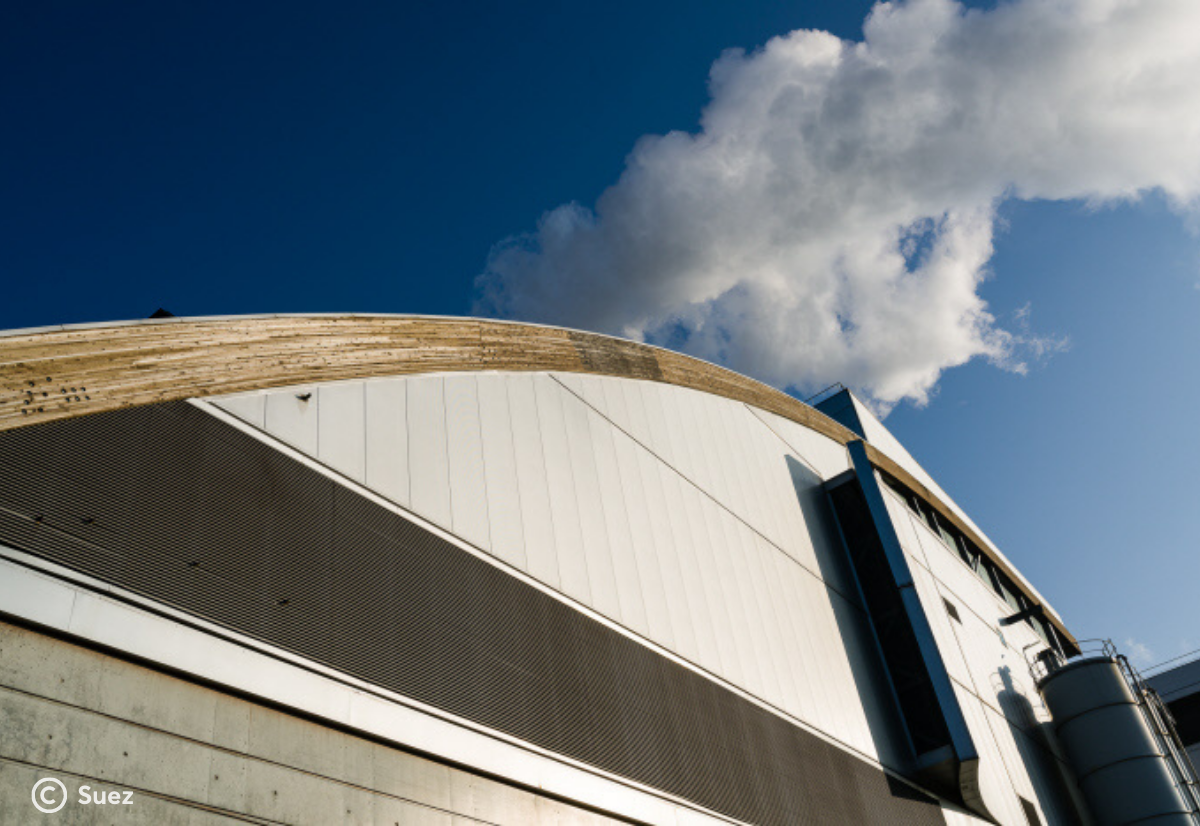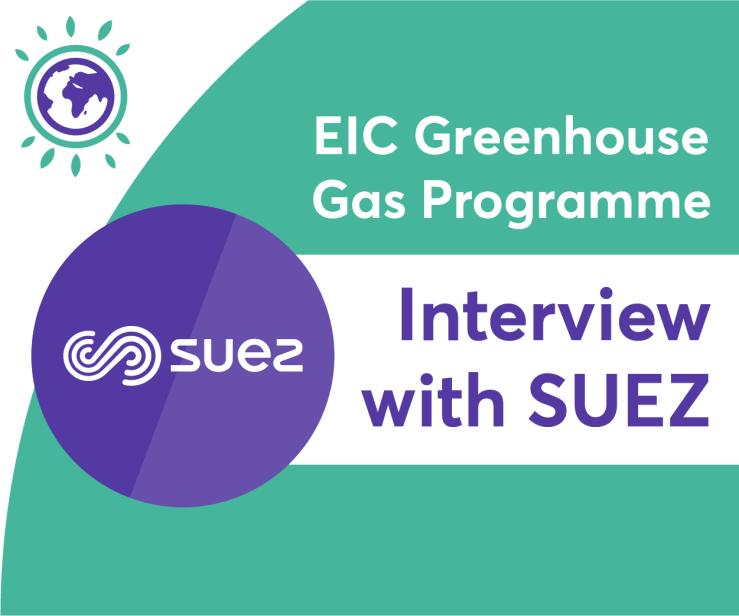The European Innovation Council (EIC) means business when it comes to being at the forefront of innovative and sustainable initiatives. That’s why we introduced the EIC GHG Co-creation activities, events between Europe’s largest corporates and EIC beneficiaries as a way of helping them build win-win synergies and co-create solutions with business partners. Following the EIC GHG Co-creation with Suez online event, we met with Sandra Andreu, Chief of Marketing and Innovation at the company to give us a few insights.
Teamwork makes the dream work. The same applies to co-creation. Especially in the context of the EIC Greenhouse Gas (GHG) programme, when EIC beneficiaries work together to co-create new green solutions with business partners to address potential sustainability challenges. In this light, after the Suez event, we had the chance to meet with Sandra Andreu and pose her some questions. Here’s what she had to say.
Can you briefly describe your role within the company and explain your motivations for joining the EIC GHG initiative?
I’m in charge of Marketing and Innovation at Suez, at a corporate level. We thought it was a good idea to join this initiative because of our ambitious 1.5-degree strategy to reduce our emissions and our clients’ ones. Our activities are mainly related to waste and water operations, so we aim to reduce the emissions (CO2, CH4 and N2O) of those essential services. Part of the solution to achieve our goal is finding new technologies to reduce and recover. Other part is to find new ways to measure those different greenhouse gases in real time onsite to adapt the operation to the emissions.
For us, internal innovation is key to achieving this, but because we aim to accelerate the process that’s why we turn to startups, SMEs or more mature companies that could potentially have more interesting technologies to accelerate this transition and help us achieve the 1.5-degree goal.
The EIC GHG Programme is all about reducing GHG emissions and moving towards a carbon-neutral future. What is your company doing in this regard?
We’re committing ourselves to significantly reduce our energy consumption. In that sense, we’re developing for example new processes for wastewater treatment that are less consuming in terms of energy. We’re also working on many projects to transform heat in energy in the process, to make it self-sufficient and avoid meaningless consumptions of energy. Another thing we’re focusing on is producing green energy thanks to the wastewater or organic waste we’re collecting to produce biogas.
Having more control over what we’re emitting in terms of CO2 emissions is also something we’re paying attention to. It led us to create an internal dedicated team called Origins.earth to check and monitor – in real-time – the level of CO2 emissions. For instance, since 2019 we’ve been using 3D models calibrated with measures to track the CO2 emissions of the city of Paris through continuous and in-situ monitoring and real time modelling.
Globally speaking, we wish to have more accurate and detailed measurements of all GHG emissions. That’s why we’ve been for example conducting trials in our R&D facilities to see if we can make changes in that regard – doing experiments on organic waste composting, operating with a GHG reduction focus at lab scale. All of this is to see if any changes in the composting process would generate fewer emissions or even if we need to change our process.
Moreover, what we’re looking at, more and more, is to be able to capture, use and store the CO2 we’re emitting and that poses a big challenge for our incinerating activities. That’s why being part of the EIC GHG programme was good for us to also discover new technologies and processes.

Unlike other flagship Business Acceleration Services programmes, this initiative is focused on co-creation as opposed to single rounds of pitching. What does co-creation mean for your company and what are the benefits compared to a ‘normal’ pitching session?
I believe co-creation is positive for topics that aren’t yet very well defined at the European level. That applies to the CCUS in the incineration industry, for example. Being able to co-create with industries and adapt to each other’s needs is always beneficial. Hence why co-creation is so important and poses a valid way of working.
Also, we’re trying certain things ourselves inside of the company that could be accelerated with some external technology and be adapted in the pilots we’re doing. That’s why putting our facilities at the disposal of the start-ups and working together in adapting what they bring to the table – also in terms of technology – makes it appealing for everyone involved.
Just recently we’ve built different joint ventures on different topics of interest, one of those was related to microalgae and adapting it to carbon capture for Suez users. Nonetheless, it proved to be interesting for many other industries as well.
What mindset and skills do you look for in companies (start-ups and scale-ups) for these co-creation activities?
They must have specific technical skills that are in line with ours or bring something new to the table that will fit our needs, use-cases, and industries. The will to move forward together. Also, sometimes a small start-up might not work at the same pace as a bigger company and not have the same capacity, so in that sense adaptation and understanding are also required aspects to achieve mutual success and a comfortable work balance.
What are the benefits/advantages of working with the EIC and its portfolio of SMEs?
The benefits are huge because the EIC possesses a very good view of all the interesting start-ups and scale-ups at the European level, and this was the perfect opportunity to work with some of them. The selected SMEs were very relevant, and that’s why launching a challenge with the EIC is always preferable instead of doing it ourselves.
For us, having external incubators and partners for our topics of interest and better selecting SMEs is always a good solution. We need reliable partners to help us select start-ups, to be able to support us in the process and make decisions quickly.

What are your views on the kick-off event and the quality of the companies pitching?
It was very interesting and well-organized. One of the most satisfying aspects was the fact that the technical directors and technical teams were able to have one-on-one meetings and exchange knowledge and ideas. Also, the format was efficient and gave the chance to mobilize specialists and start-ups to work better on the topics at hand and that they were interested in.
To conclude, what would make this EIC GHG Co-creation initiative a success for your company. In other words, what are you hoping to get out of it?
In my opinion, a great success would be if we could co-create with two or four SMEs for the next 10 years. It’s interesting for us to work with some SMEs more recurrently and with other ones maybe more sporadically. But it would be a win if these cooperative co-creation activities spread themselves for a longer period to generate fruitful and positive outcomes.

DISCLAIMER: This information is provided in the interest of knowledge sharing and should not be interpreted as the official view of the European Commission, or any other organisation.

